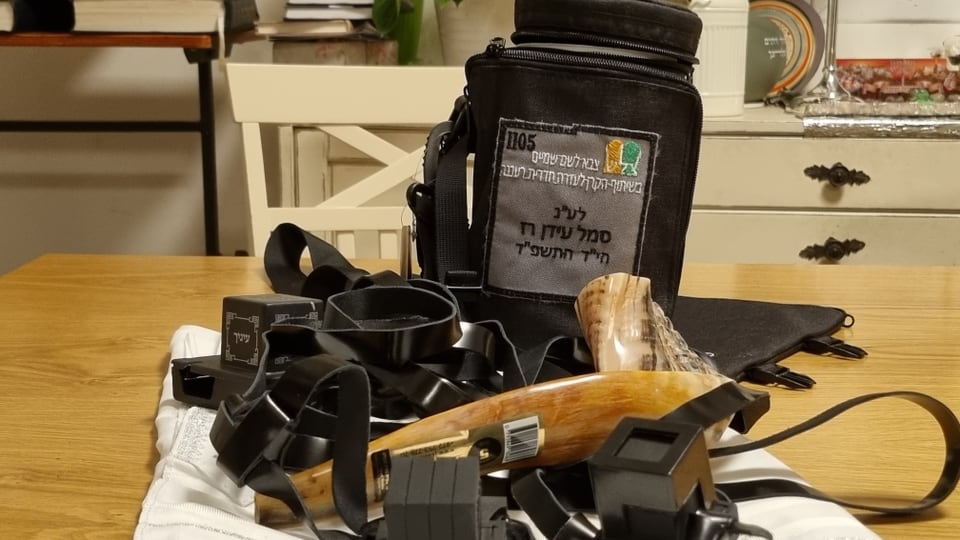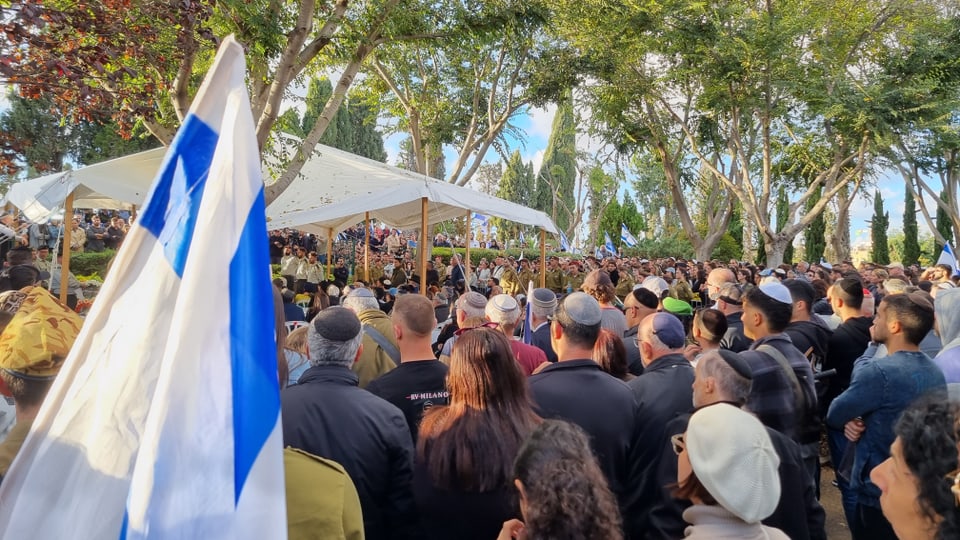
According to conventional wisdom, strictly religious Jews did little or no military service. It has changed.
A soldier is buried in Ra'anana, north of Tel Aviv. The young man fell in the Gaza Strip. Several hundred people attended the funeral of the 23-year-old battalion commander, many in tears. Orthodox Jews are conspicuous in the crowd. One of them will be buried. In Israel it is said that religious people do not always serve in the military.
“Military service is a religious duty”
A rabbi resides not far from the tomb, which contradicts this image. Rabbi Peretz Einhorn, 40, served in the Kivati Infantry Regiment for three years, including in the Gaza Strip. The father of seven sees military service as a religious duty.

Purana:
Rabbi Peretz Einhorn served in the Israeli army. Today, along with hundreds of volunteers, he cares for thousands of religious veterans in military service.
SRF
“Religious Jews know that military service is a mitzvah, a commandment. But many fear that other religious orders cannot be followed in the military, and that non-religious soldiers, women, and other cultures may lose their religion by interacting with them.
Prayer equipment for the battlefield
That's why Rav Peretz, whom most people call the Rabbi of Ra'anana, founded the organization Tzalash (https://tzalash.org/) was established. “I was in Machina, a military training program. I've heard from religious families that their sons have left their religion in the army – how they see it as a shame. So I looked for a way to combine military service with religion.
250 volunteers help the rabbi care for thousands of religious soldiers: they conduct services in barracks and in the field, care for their wives and children, and equip soldiers with battlefield-ready prayer tools.
Even non-religious soldiers or non-Jews prefer to wear religious items on the battlefield in Gaza.
Rav Peretz descends into his basement, where he claims to have everything he needs for spiritual warfare. The rabbi picks up one of the mountain backpacks and shows what it contains: a Shabbat ritual, pocket copies of the Torah, a shofar, a prayer shawl, and phylacteries.

Purana:
A prayer for the front is set: the bag contains everything necessary for the Sabbath.
SRF
The phylacteries are packed in a separate bag. Each bag bears the name of one of the approximately 1,200 victims of the October 7 Hamas attack. Rabbi Peretz Einhorn says that non-religious soldiers or even non-Jews prefer to wear religious items on the battlefield in Gaza.
In the words of Rav Peretz, religious objects are now becoming a national symbol: “When I wear the phylacteries, I feel Israeli – religion and national consciousness together.”
“Terrorists make no difference”
Before the attack by Hamas in early October, Israelis fought among themselves – religious against secular, left against, Rav Peretz said: “We are the people of Israel, we are one! When the terrorists killed us, they did not discriminate between right, left, religious, non-religious. We are one. Hamas reminded us that the people.

Purana:
Many attend the funeral of the 23-year-old battalion commander in Raanana town.
SRF
Before the war, secular Israelis strongly opposed excessive religious influence in the armed forces and politics. The rabbi was not involved in this controversy. He likes to point out the great sympathy shown by the people of Ranaana when a soldier falls in the Gaza Strip: “We all value the survival of our people more than our own lives.”

“Wannabe pop culture fanatic. Zombie advocate. Entrepreneur. Internet evangelist. Alcohol fanatic. Typical travel buff.”




More Stories
Choosing the Right Quality Management Software for Your Industry
If guests bring items: Can shower gel be packed from the hotel?
This diet can prevent death from dementia